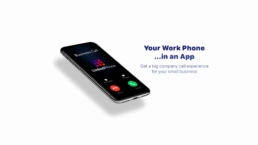Top 10 Sales Buzzwords in 2023 – Use Them or Lose Them?
What is a Buzzword?
A buzzword is a word or phrase, often an item of jargon, that is fashionable at a particular time or in a particular context. Many corporate buzzwords are common across industries. Some industries may use buzz words that are unique only to that industry.
Purchasing any complicated product for your business, like specialized machinery or computer software, requires the help of a skilled salesperson. But sometimes, you end up on a call with a sales rep who speaks completely in buzzwords and jargon, asking how they can “move the needle to hit the ground running.”
When training your own sales team, make sure they use sales buzzwords appropriately. If you hear one of your reps say, “We provide cutting edge, top of the line products that will make you look like a rockstar and give you 1000% ROI,” pull them aside to practice speaking in layman’s terms.
Not all buzzwords are bad though. Industry-specific terms are useful when communicating complex ideas in simple ways. Here are our top 10 sales buzzwords. Some are useful – and some are best left in the past.
Quick Wins -or- Low Hanging Fruit
Quick wins are things that your company can easily achieve in a short amount of time. They’re practically guaranteed to succeed and a positive contribution to the overall company. They’re also called slam dunks, sure things, and no-brainers.
Finding quick wins helps you look for opportunities that can move your business forward. The big wins that take time and hard work are important too, but quick wins certainly help morale and employee motivation.
Business Growth Toolkit
Get the latest thought leadership insights on growing your business plus occasional LinkedPhone updates. We respect your inbox!
Closing a sale with a repeat customer, who already loves your product, is a quick win. Using your personal network to secure free social media advertising is another. Quick wins are great for motivating your team, fueling momentum, and boosting confidence.
Optimize
Running a small business requires you to optimize your website, your sales strategy, your marketing content, and more. But what does optimize really mean? Optimization is about improving your processes to attract more customers and increase revenue for your business.
As a buzzword though, it doesn’t give you an action plan, so be wary of salespeople that promise too much. Optimization is an ongoing exercise that helps companies identify strategies that are measurable. In short, you can’t just wave a wand to optimize your website, you must put in the work and the time to find the best path forward.
LinkedPhone serves the small business community with local & toll-free business numbers that work with your cell phone, desk phone, & laptop. Add a 2nd phone number to your cell phone with our mobile app. Talk & text with clients on the go. Add team members too. Finally break free from the desk phone. At LinkedPhone, freedom rings! 🔔📱💻☎️
Strategy
Much like the word optimize, when someone sells you on their strategy, ask them for the details. It’s easy to confuse tactics for strategy. Tactics can be checked off of a list and include things like posting daily on social media or calling down a list of leads every day.
Creating a business strategy is about setting goals and priorities to achieve your desired business outcome while moving closer to your company’s vision. It’s following a framework that helps you make the right decisions for the future of your company.
Before you can determine your strategy, first you must clarify your value proposition, find your target market, and differentiate yourself from your competitors. To get started, brainstorm with your team and research ideas.
Touching Base -or- Checking In
After the initial cold call, some sales reps think they can win business by wearing you down. They keep calling or emailing saying that they’re just ‘checking in’ or ‘touching base’ to see if you are ready to talk and buy their product. These buzzwords provide no value to the customer.
In your own sales efforts, avoid touching base every couple weeks. Instead, call or email with useful information to help them make a decision. Offer a services plan that will help them set up your machinery faster. Call them with an update on a feature request that they put through. Invite them to a webinar designed for their specific industry. Otherwise, they’ll start avoiding your check in calls. Lastly, thank your potential clients for their continued engagement.
ROI - Return on Investment
It’s easy to throw around the term ROI when you’re focused on convincing someone to buy from your company. Unethical marketing techniques will claim amazing ROI – with no evidence. But return on investment (ROI) is an important business calculation and small businesses can’t afford to make costly mistakes.
Determining ROI when making a purchase or implementing a new strategy requires a deep dive into performance metrics. Can this product save your sales team time? Decrease the costs of getting more customers? Increase your speed to market? Replace a more costly incumbent product? Will it take months – or years – to achieve ROI?
If your sales team can’t back up their ROI claims with the answers to these questions, then it’s time to train them on how to communicate the value of your products to their customers.
Open The Kimono
This outdated buzzword is steeped in sexism and racism. Opening the kimono means showing another party the inner workings of your business. It implies a step towards greater business intimacy.
Salespeople historically used this term as a way to endear themselves to customers and prospects as a metaphor for transparency. It assumes that your buyers are men who may find this phrase fun or charming. But no one wants to sexualize their business deals and you can lose customers with this offensive phrase. It’s exclusionary, disrespectful, and inappropriate in the workplace. Dump this buzzword fast.
Put It On The Backbuner
On the one hand, if your customer says to put a topic on the backburner, it could mean that they need some time to think through the implications. If this is the case, give them a moment and bring it up again later.
It can also be a polite way to keep a conversation on track. If you’re meeting with your sales team about quarterly targets and someone asks a question about an upcoming product update, tell them that you’ll put their question on the backburner for now. Make sure to answer the question later.
On the other hand, it’s an easy way to dismiss a problem by diminishing its urgency so you can avoid having a difficult conversation. It’s an ambiguous buzzword. If you do use this phrase, clarify that you’re not ignoring the person, you’re just making the best use of time.
Rock Star
Frequently seen on sales job postings, this buzzword is intended to attract a high energy and successful candidate. Examples include, “looking for a rock star sales rep who can crush their sales targets,” “we’re hiring a rock star customer service agent to wow our clients,” or “we’re looking for rock stars who can pitch our business to investors.”
What is a rock star? Someone who has a larger than life personality? Someone who’s creative and revolutionary in how they do their job? Or is it someone who needs to be the center of attention?
There are many great candidates who don’t identify with that word. You may miss out on a nurturing customer service rep or a salesperson who is an active listener that builds long term relationships with their customers. Be thoughtful in how you advertise open roles at your company.
Synergies
One hundred years ago, synergy was a word that had contextual meaning. It described how businesses could work together towards accomplishing a larger goal. Starting in the 1950’s, it became a buzzword that was thrown around in corporate offices. Flashy, but without meaning.
Imagine someone pitching a partnership with their company saying, “in a word, synergies!” They sound like a charlatan and unless they can back that up with an actual plan, they won’t win your business. Unless you can speak to the details of the synergies, like reducing overhead, leave this buzzword in the past.
Cutting Edge
Much like “leading edge” or “state of the art,” this buzzword is intended to make a company seem futuristic, advanced, and having the newest technology. Be very careful about using a term like this. If your small business sells genuinely innovative technology – like a brand new cancer treatment – then calling your product cutting edge makes sense.
But If you sell bookkeeping software, it’s unlikely that you’re going to blow prospects’ minds with never-before-seen technology. It can also backfire and make your product or service sound far too expensive. Avoid hyperbole and drop this buzzword unless you can back up your claims.
Sales Buzzwords Are Here To Stay
Some buzzwords are useful. Encouraging your colleagues to close quick wins can create a positive environment and build confidence. Putting an idea on the backburner can mean that you take someone’s idea seriously, and need time to mull it over. There will always be sales buzzwords but please don’t touch base with your clients and definitely don’t talk about opening the kimono.
Small Business Resources
A special high five to Tahera Ali Khan for her outstanding research and contributions to this article. We love working with and supporting like-minded entrepreneurs. Thank you Tahera! ❤️
Get In Touch
We would love to hear from you.
Please contact us at any time with questions or feedback.
























